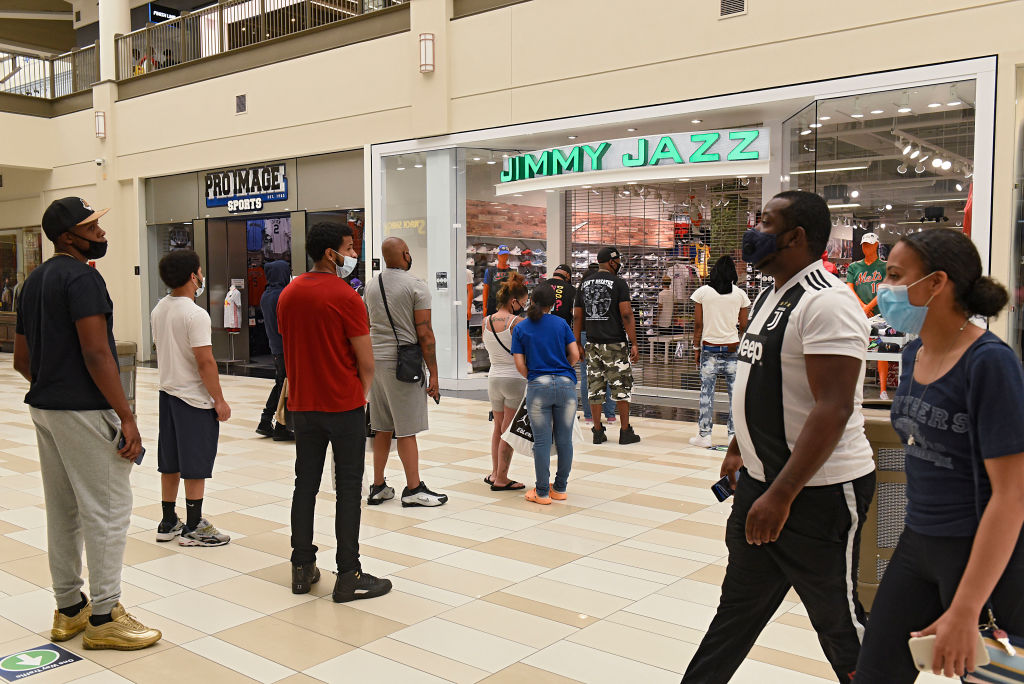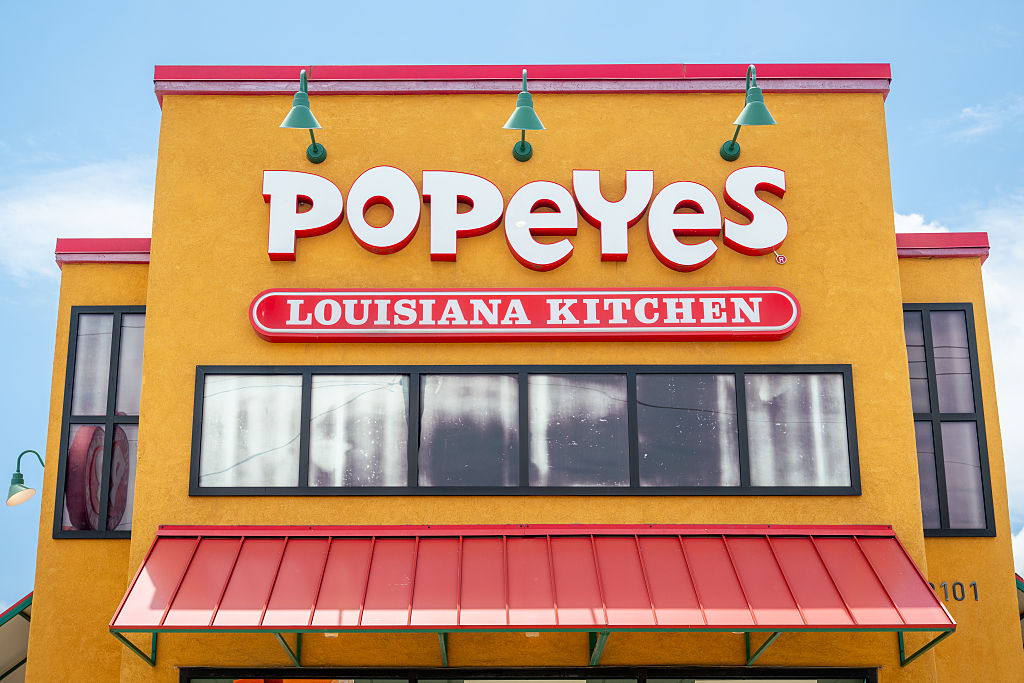Ever end up grooving to BET, rocking a Def Jam tee, or lathering up with some Darkish & Pretty, all whereas pondering, “Assist Black enterprise!”? Hate to interrupt it to you, however you’ll have been tricked by some significantly intelligent branding. Welcome to the id phantasm period, the place manufacturers are marketed to Black shoppers, communicate the language of the tradition, and in some instances, have been even based by Black entrepreneurs, however finally, they’re not (or by no means have been) Black-owned.
Let’s check out 9 stunning names that really feel Black-owned however aren’t.
9. Black Leisure Tv (BET)
“Black” is actually within the title. BET was based by media mogul Robert L. Johnson in 1980 and rapidly turned the go-to channel for Black music, tradition, and leisure. However in 2001, Johnson bought BET to Viacom for a whopping $3 million, the media big behind MTV and Nickelodeon. The sale made Johnson America’s first Black billionaire, a serious win, but additionally a serious possession change. Right now, BET is owned by Paramount International (previously ViacomCBS), not a Black-owned firm.
8. Def Jam Data
The label that helped launch LL Cool J, Public Enemy, and later Jay-Z and Kanye West was co-founded by Russell Simmons and Rick Rubin in 1984. Simmons bought half of Def Jam to Polygram in 1994, then offloaded his remaining stake to Common Music Group for $100 million in 1999. Nowadays, Def Jam is a worldwide label underneath the UMG umbrella, not Black-owned.
In response to Music Enterprise Worldwide, by the tip of 2022, main traders like Invoice Ackman and Constancy Holdings had confirmed their stakes in Common Music Group (UMG) to monetary regulators. Nonetheless, the shareholdings of most different traders hadn’t been up to date since September 2021, when UMG formally went public on the Euronext Amsterdam inventory trade.
Invoice Ackman’s funding in UMG is managed via a fund referred to as “PS VII Grasp LP,” the place “PS” stands for Pershing Sq., his hedge fund. By way of Pershing Sq. and its associates, Ackman acquired a ten% stake in UMG for roughly $4 billion through the summer season of 2021. In the meantime, Vincent Bolloré’s possession in UMG is unfold throughout a number of entities, together with Bolloré Participations SE, Bolloré SE, and Omnium Bolloré, reflecting his long-standing affect within the firm via a community of holding companies.
7. Marc Ecko (Ecko Limitless)
Streetwear with graffiti aptitude? Sounds hip-hop, proper? Effectively, Marc Ecko is a white designer from New Jersey who launched his line Ecko Limitless within the early ’90s. He by no means claimed to be Black however efficiently tapped into city trend by mixing skate, graffiti, and hip-hop aesthetics. His iconic rhino emblem? Only a daring design selection, not a logo of African roots.
In response to the Put up-Gazette, the rhino emblem for Ecko Limitless was impressed by Marc Ecko’s father’s assortment of wood rhino collectible figurines. Ecko felt {that a} rhino, with its highly effective and considerably rugged picture, could be a powerful visible hook for his model. The concept paid off in the long run, garnering hundreds of thousands for the style designer long run.
In 2009, Ecko bought his legendary model to Iconix, giving up a 51% stake for $63.5 million in money and $90 million in financing for the three way partnership, Vibe reported. He went on to discovered Complicated Media, the world’s main media website for leisure information, trend, life-style, sports activities, and streetwear tradition. Ecko was appointed to serve because the model’s chief artistic and innovation officer in April, in keeping with WWD.

6. Jimmy Jazz
Regardless of sounding like a cousin of Sean John or Rocawear, Jimmy Jazz was based by James Khezrie, a white entrepreneur from Brooklyn. The title? Impressed by a tune by British punk band The Conflict (yep, actually). With 120+ shops and types like Child Phat and Coogi on the cabinets, it’s a cornerstone in city retail, but it surely’s not Black-owned.
Now, Khezrie is a serious participant in the actual property world. He’s the founding father of CityView Industrial, an actual property firm specializing within the “strategic acquisition and proficient administration of opportunistic industrial actual property belongings,” the corporate’s web site notes.
5. Darkish & Pretty
From perms to no-lye relaxers, this model has been a staple in Black haircare because the ’70s. It was initially created by Black chemists, however L’Oréal, the French magnificence conglomerate, acquired Darkish & Pretty in 1998. Empowering packaging? Completely. Black-owned? By no means! Simply have a look at who at present sits on the Board of Administrators at L’Oréal. Not a Black particular person in sight.
4. Cantu Magnificence
Cantu’s curly hair merchandise are a favourite in lots of Black households, however the model is definitely owned by PDC Manufacturers, a magnificence firm primarily based in Connecticut. The model’s imagery and concentrate on textured hair create a powerful cultural attraction, but it surely’s not Black-owned.
3. Shea Moisture
This one actually stings. Shea Moisture was based by Richelieu Dennis, a Liberian-American entrepreneur, who constructed it on his grandmother’s recipes. However in 2017, Dennis bought Shea Moisture’s guardian firm, Sundial Manufacturers, to Unilever for an estimated $1.6 billion, Forbes notes. Whereas Dennis stayed on in a management position and launched initiatives to help Black entrepreneurs, the model is now owned by a multinational company.

2. Popeyes
Let’s take a second to highlight a primary instance of how branding can blur the traces of possession: Popeyes. With its mouthwatering Louisiana-style menu — assume gumbo, collard greens, and spicy fried hen — it was thought for many years that the model’s well-known spokesperson, named “Annie,” was the proprietor. However that picture, whereas flavorful, isn’t the complete story.
Since 2009, actress Deidrie Henry has helped Popeyes promote its delectable quick meals to properties around the globe, showing in quite a few commercials, in keeping with Portland Middle Stage, however she just isn’t the founder. It was based in 1972 by Al Copeland, a white entrepreneur from New Orleans. Through the years, Popeyes has closely marketed to Black communities and has a notable variety of Black franchisees.
Nonetheless, possession issues, and as we speak, the model is owned by Restaurant Manufacturers Worldwide, the identical company big behind Burger King and Tim Hortons. Ethical of the story? Scrumptious branding doesn’t all the time equal Black possession. All the time comply with the cash.
1. The George Foreman Grill
The George Foreman Grill was famously named after the legendary boxer, and he did assist market the favored cooking gadget tremendously. However Foreman didn’t personal the model; he was a paid spokesperson. As beforehand reported, Foreman was approached by inventor Michael Boehm within the ‘90s about promoting the world-famous grill, in keeping with Boehm’s 2016 interview with Entrepreneur. Upon sending the boxer a promote sheet and prototype of the kitchen equipment, initially, Foreman was “skeptical” about promoting the product, Boehm revealed.
“It wasn’t till Foreman’s spouse obtained concerned that they actually took it significantly,” he stated.
After some convincing, Foreman finally agreed to be a spokesperson for Boehm’s distinctive invention and went on to promote over 100 million grills. He turned a well-recognized face on tv, usually seen selling the gadget whereas sporting an apron.
These manufacturers have undoubtedly contributed to Black tradition and visibility, however branding, promoting, and cultural alignment don’t all the time equate to Black possession. So, subsequent time you’re buying with a “purchase Black” mindset, test the receipts, actually and figuratively.
SEE ALSO:
Black-Owned Wellness Golf equipment Empowering Protected Areas
Black Historical past Month: 10 Black-Owned Wellness Manufacturers
9 Manufacturers You Thought Had been Black-Owned However REALLY Aren’t
was initially revealed on
newsone.com